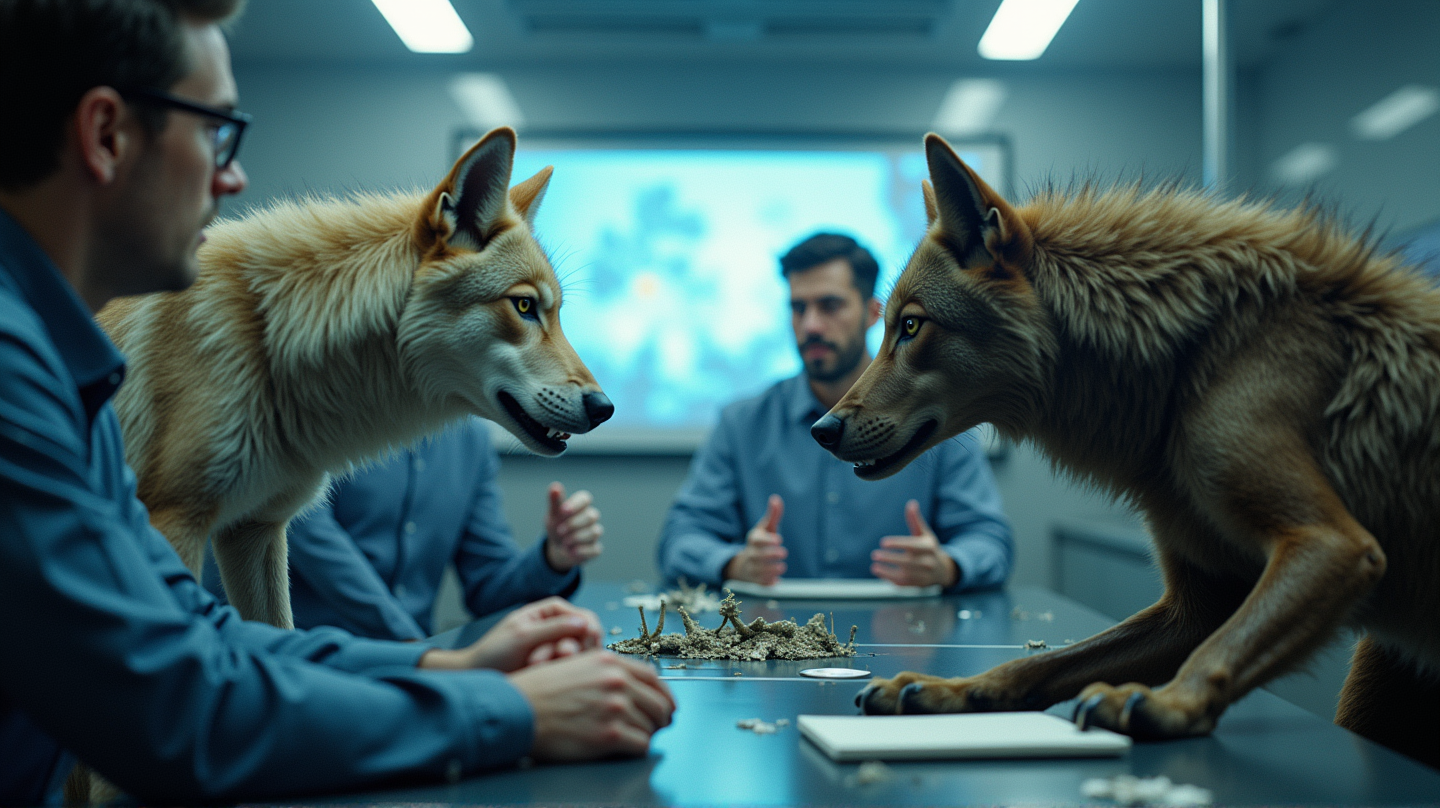The Dire Wolf Resurgence: A De-Extinction Dream or Scientific Misstep?
Colossal Biosciences sparks controversy with dire wolf claims. Is de-extinction possible or just a scientific overhype?

The Bold Claim Unveiled
In a move that has both thrilled and exasperated the scientific community, Colossal Biosciences announced the “de-extinction” of the iconic dire wolf. According to Chemical & Engineering News, this announcement has sparked a wildfire of debate over what truly defines de-extinction and the ethical implications tied to such bold claims.
Experts Challenge the Narrative
Prominent voices in the field, such as evolutionary biologist Vincent Lynch, express their skepticism, stressing that while Colossal’s wolves may look similar to dire wolves, they are in essence modified gray wolves. David Shiffman, an environmental scientist, concurs, highlighting the nuances lost in mainstream narratives.
The Science Behind De-Extinction
Dire wolves, extinct for over 10,000 years, captivate due to their Game of Thrones-inspired allure. However, Colossal’s approach merely involves genetic modifications of contemporary wolves, a point underlined by Ben Novak, a de-extinction expert. To Novak, true de-extinction cannot replace lost lineages.
The Role of Media and Public Perception
Media coverage has amplified Colossal’s claims, declaring it a scientific breakthrough. Yet skepticism looms, as critics argue the company’s motives may lean more towards business prestige than scientific integrity. Stankowski warns against overselling technological feats without full transparency.
Investors and the Hype Machine
Colossal’s $10 billion valuation rests on the allure of innovation. Critics say their strategy to fuel investor interest via spectacle risks muddying public understanding, as articulated by conservationists concerned with misleading public messages.
What Lies Ahead?
The dire wolf’s “revival,” indicates a deeper discussion on balancing scientific discovery with authentic representation to the world. As conversations continue, the true potential and limits of biotechnology remain uncertain. Is it hope for a lost world, or a hubristic scientific detour?
Bridging Science and Conservation
The debate circles back to the core conservation goal—preserving habitats for existing species under threat. As the mythical dire wolves roam public imagination, scientists urge an approach marrying innovative techniques with ecologically sound practices.